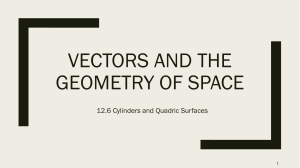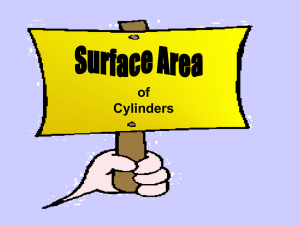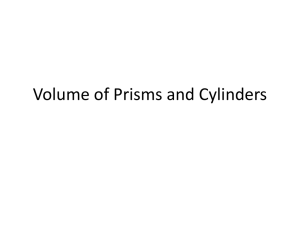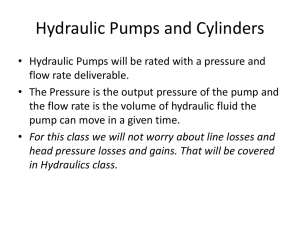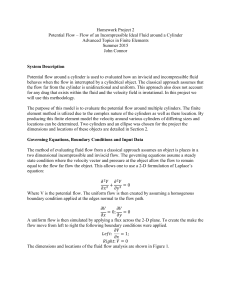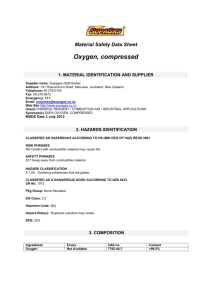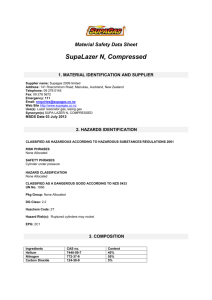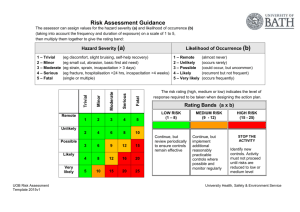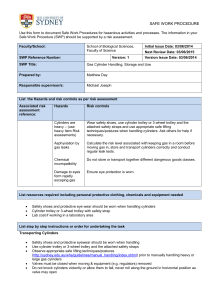Elliptical Perspective & Cylindrical Objects
advertisement
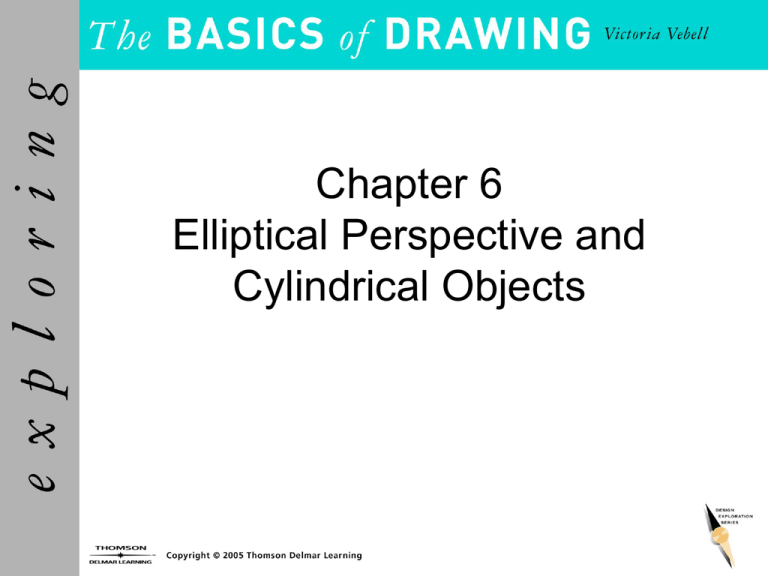
Chapter 6 Elliptical Perspective and Cylindrical Objects Objectives • Understand elliptical perspective and describe its use in drawing. • Draw an accurate ellipse freehand. • See the underlying cylindrical form of objects in order to simplify their shape. • Draw cylindrical objects, whether they are standing up or lying down, accurately and with a sense of the object’s volume. Elliptical Perspective • Seen from directly above or below, a circle is round. • As the edge of the circle comes closer to your eye level, the ellipse narrows. Upright Cylinders (1 of 2) • The two ellipses (circles) on the ends of a cylinder are the same size. • Their apparent shape changes because you don’t see both ellipses from the same eye level. Upright Cylinders (2 of 2) • The ellipse you can see (top or bottom) is narrowest where it meets the sides, widest in the middle • Draw perpendicular guide lines to keep the ellipse from being lopsided. Cylinders on Their Sides (1 of 2) • Drawing a cylinder that’s lying on its side requires using both elliptical and linear perspective. Cylinders on Their Sides (2 of 2) • First, draw a guide line down the center of the cylinder, parallel to the sides and running through the centers of the ellipses. • Then, draw perpendicular guide lines for the ellipses. Volume in Cylinders (1 of 2) • Establishing volume in cylinders combines the techniques of the sphere and the cube. • The greatest contrast on the sides comes in the middle—the area closest to the viewer— as in a sphere. Volume in Cylinders (2 of 2) • The greatest contrast on the edges comes at the point closest to the viewer, as on a cube. • The cylinder, like the cube, has a second cast shadow, a thin dark line. Summary (1 of 2) • Elliptical perspective – An ellipse appears to narrow as it comes closer to your eye level, to widen as it gets farther away. • The cylinder is one of the four basic shapes. – It combines the attributes of the sphere and the cube. • The two ellipses of a cylinder do not appear identical because they are at different distances from your eye level. Summary (2 of 2) • When a cylinder is lying on its side, linear perspective makes the sides appear to converge. • Draw a central guide line and a perpendicular guide line to render the ellipses of a cylinder lying on its side. • Illusion of volume in a cylinder comes from contrast in value between ellipses and sides and between light and shadow areas of the sides.
